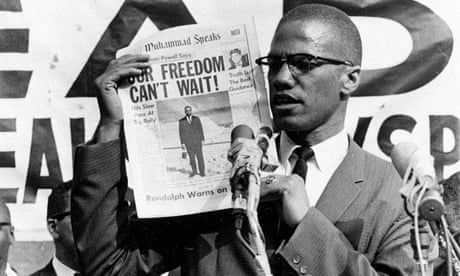
The author inhabits the perspective of five figures, from Malcolm X to footballer Justin Fashanu, in this lyrical account of their lives, a thrilling affront to the archives that exclude them
If there is one thing that all historians must make peace with, it is that it is hard, often impossible, to know how people in the past felt. Historical fiction has the upper hand in its ability to render the complex yet plausible emotions and motivations of historical figures. Categorised by the publisher as creative nonfiction, Ekow Eshun’s The Strangers is foremost a work of imagination that sits somewhere between history and fiction. In lyrical prose, it presents the lives of five Black men: Ira Aldridge, 19th-century actor and playwright; Matthew Henson, polar explorer; Frantz Fanon, psychiatrist and political philosopher; footballer Justin Fashanu; and Malcolm X. Through them, the book moves from the early-19th century to the late-20th. More connects these men than race. Eshun selects moments when each one is in an exile of some kind, geographically and emotionally far away from what they once knew, questioning their place in the world, estranged in some way from their previous life.
For all five, there is a long chapter that imagines how they experienced some of the most significant moments of their lives. These chapters are written mostly in the second person. As Eshun mentions in an author’s note, he wants to inhabit each man’s perspective – and allow us to. And it is effective. Each chapter is absorbing, no matter how much you already know. Captivated by New York theatre productions, Aldridge becomes an actor, only to be ridiculed in London by critics who believe that only white actors (in blackface) can truly perform the role of Othello. Outside the capital, though, Aldridge is hailed. From 1891, Henson travels with US naval officer Robert Peary for nearly two decades in a long quest to reach the north pole. The relationship between Henson and Peary, both similar in their refusal to let the Arctic climate defeat them, takes on the qualities of a psychodrama. In Eshun’s telling, Peary can never accept what Henson knows: the commander only survived these trips because of Henson’s skilled support and the formidable knowledge of their Inuit guides.
Continue reading...